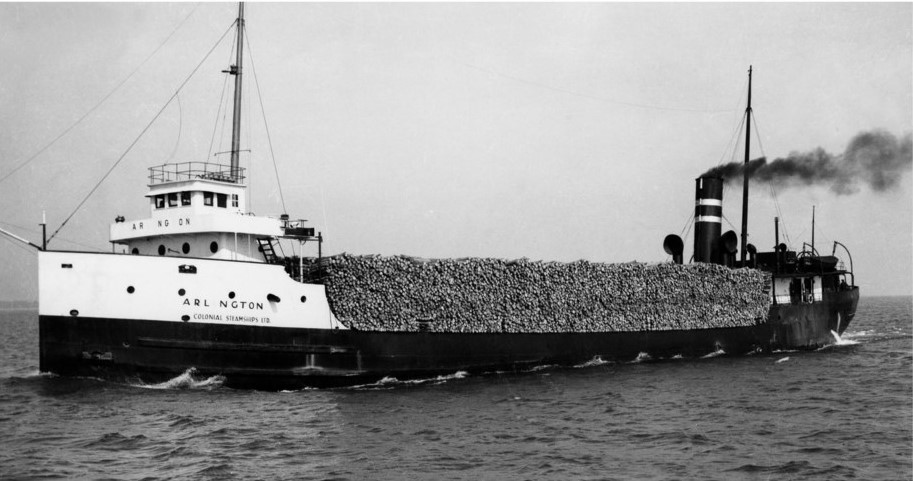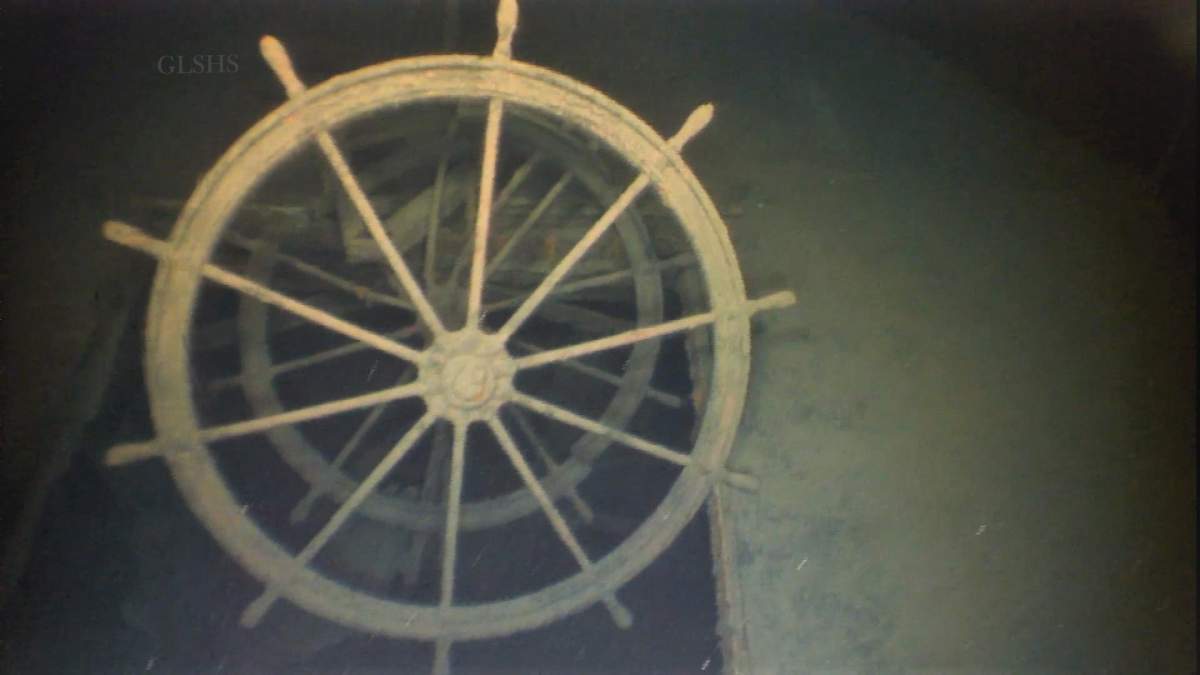A World War II era shipwreck has been found after 84 years concealed in the murky depths of Lake Superior.

The Great Lakes Shipwreck Historical Society announced Monday the discovery of the SS Arlington, a 244-foot bulk carrier steam ship that went down in a violent storm on April 30, 1940, taking its captain, Frederick “Tatey Bug” Burke, with it.
Burke, a seasoned captain, was born around 1888 in Midland, Ont., where his home still stands, according to the Midland Heritage Committee. He earned the nickname Tatey Bug because of a speech impediment he had growing up that made pronouncing the name Teddy Burke difficult.
Burke and his crew were delivering a full cargo of wheat from Thunder Bay to Owen Sound when the ship began taking on water, eventually slipping beneath the waves. All of the crew members made it onto lifeboats and were rescued by the SS Collingwood, a larger freighter that was making the Lake Superior crossing at the same time.
The captain was the sole person to go down with the ship — and the reason why has been an enduring puzzle for local historians.
Thanks to a decade-long effort by shipwreck researcher Dan Fountain, we now know the Arlington’s final resting place: under 600 feet of water just 56 kilometres north of Michigan’s Keweenaw Peninsula, not too far from the ship’s starting port in Thunder Bay.

Get breaking National news
Fountain was studying remote sensing data in his search for shipwrecks in Lake Superior when he came across a “particularly deep anomaly,” the Great Lakes Shipwreck Historical Society wrote.
He reached out to the historical society for help, and in 2023, a crew was assembled to tow a side-scan sonar, used for imaging large ares of the seafloor, over top of the anomaly. The results confirmed Fountain had found a shipwreck.
A remotely-operated underwater vehicle was used to positively identify the submerged hulk of the Arlington.
“Had Dan not reached out to us, we might never have located the Arlington… and we certainly wouldn’t know as much about her story as we do today,” said the executive director of the historical society, Bruce Lynn. “These targets don’t always amount to anything… but this time it absolutely was a shipwreck. A wreck with an interesting, and perhaps mysterious story.”
The circumstances leading up to the Arlington’s wreck are indeed peculiar.
According to the Great Lakes Shipwreck Historical Society, the Arlington and the Collingwood set off on Lake Superior and were soon met with dense fog.
“As the day turned to night the fog turned into a storm and battered both ships.”
As the Arlington started to take on water, its first mate, Junis Macksey, directed the helmsman to hug the north shore of the lake, which would have provided some cover from the wind and waves. But Captain Burke countermanded the order and charted a course across the open lake.
In the early hours of May 1, 1940, the ship’s chief engineer raised the alarm that the Arlington was starting to sink.
“Out of fear for their lives, and without orders from Captain Burke, the crew began to abandon ship on their own,” the historical society write. “Reports indicate that (Burke) was near the pilothouse of his ship and waved at the Collingwood minutes before his ship went to the deep, 650-feet to the bottom of Lake Superior.”
The pilothouse is where the wheel of the ship is located. Photos of the Arlington released on Tuesday show that its steering wheel has remained intact all this time.
Burke “easily could have been saved like the rest of his crew” on that fateful day, the historical society claims, though the Midland Heritage Committee reports a slightly different story.
“It is believed that Burke heroically kept the freighter upright until the lifeboat was launched, ensuring the survival of all his crew members. However, by staying at the helm too long Burke was unable to board the lifeboat before the ship overturned, causing his death,” the committee writes.
In any case, researcher Fountain hopes this discovery can “provide some measure of closure to the family of Captain Burke.”













Comments
Want to discuss? Please read our Commenting Policy first.